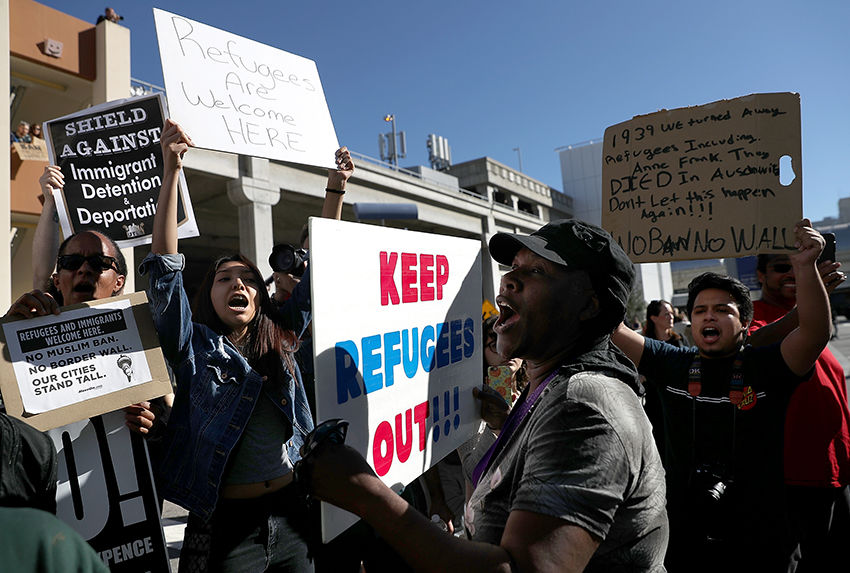“In parish communities, we have seen uncertainty, fear and restlessness because families don’t know exactly what’s going to happen in the wake of President [Donald] Trump’s rise to power,” said Jaime Huerta, associate director of the Office of Life, Justice and Peace in the Archdiocese of Los Angeles.
Those fears are rooted in campaign promises and recent executive actions on immigration.
Last week’s measures included a renewed emphasis on the border wall between the United States and Mexico, loosened restrictions on detention and deportation of undocumented immigrants, withholding of federal funds from “sanctuary cities” and, in the latest, suspended entry into the U.S. for migrants from seven Muslim-majority countries as well as refugees around the world.
Parishes in the Archdiocese of Los Angeles have assumed an active role in preparing the faithful to confront any eventuality, such as the detention or deportation that would split up families.
“We began our efforts in December,” said Huerta. “In the past, various parish leaders with interest and desire helped many obtain their driver’s license, then go through the procedures to obtain temporary protection through DAPA and DACA, and, before the elections, assist legal residents to become citizens and encourage them to vote.”
Various parishes will continue efforts, forming work teams to help the faithful know and defend their rights, “whether or not they have their migration documents,” underscored Huerta. “Rights they have simply because they are in this country. Basic rights that many are unaware of.”
The other part of this training is preparing for the possibility of families being separated. “If anyone is detained or deported, how do you prepare for that? For example, if undocumented parents are deported, what happens to their children? These parish teams will explain how to make a plan that includes with whom the parents desire the children to stay — it could be a neighbor, a relative, etc.,” said Huerta.
“Or if one is detained and has a bank account, how will the family have access to the money to cover the cost of basic needs? It can also happen that their cellular phone will be removed and, for that reason, it is important to memorize the number of a lawyer, an organization or someone that can support them.”
Parish teams will be sharing this kind of information in orientation sessions so that participants will know how to prepare in case a loved one is detained or deported.
“Once leaders learn how to conduct these information sessions, they will return to their parishes to prepare their people,” Huerta said.
Those interested in forming teams or receiving services can get information from their parishes.
Huerta is collaborating with Auxiliary Bishops David G. O’Connell and Edward Wm. Clark, and have already conducted regional workshops in San Gabriel and Our Lady of the Angels. They are planning a San Fernando regional workshop with Auxiliary Bishop Joseph V. Brennan. Plans are also underway for workshops in San Pedro.
This work is not to foment fear, but just the opposite, Huerta said.
“We want to alleviate it, so that the people have something important on which to focus and so that will help them in the case that something unexpected happens,” he said. “We have to have hope that something better will come, without failing to prepare ourselves for the worst. It’s useful and practical for us to be able to take action in the reality in which we live, whoever is in the White House.”
